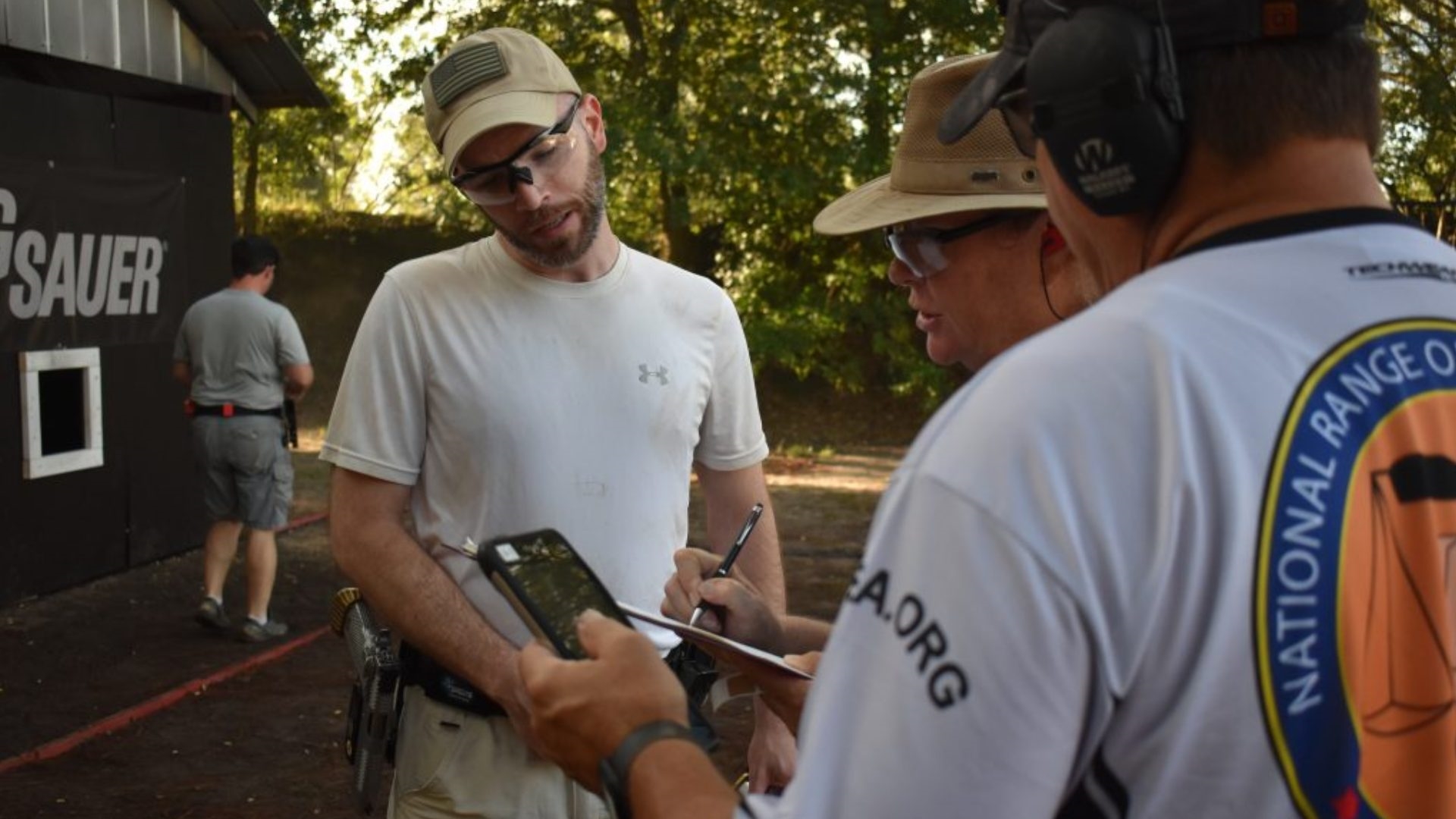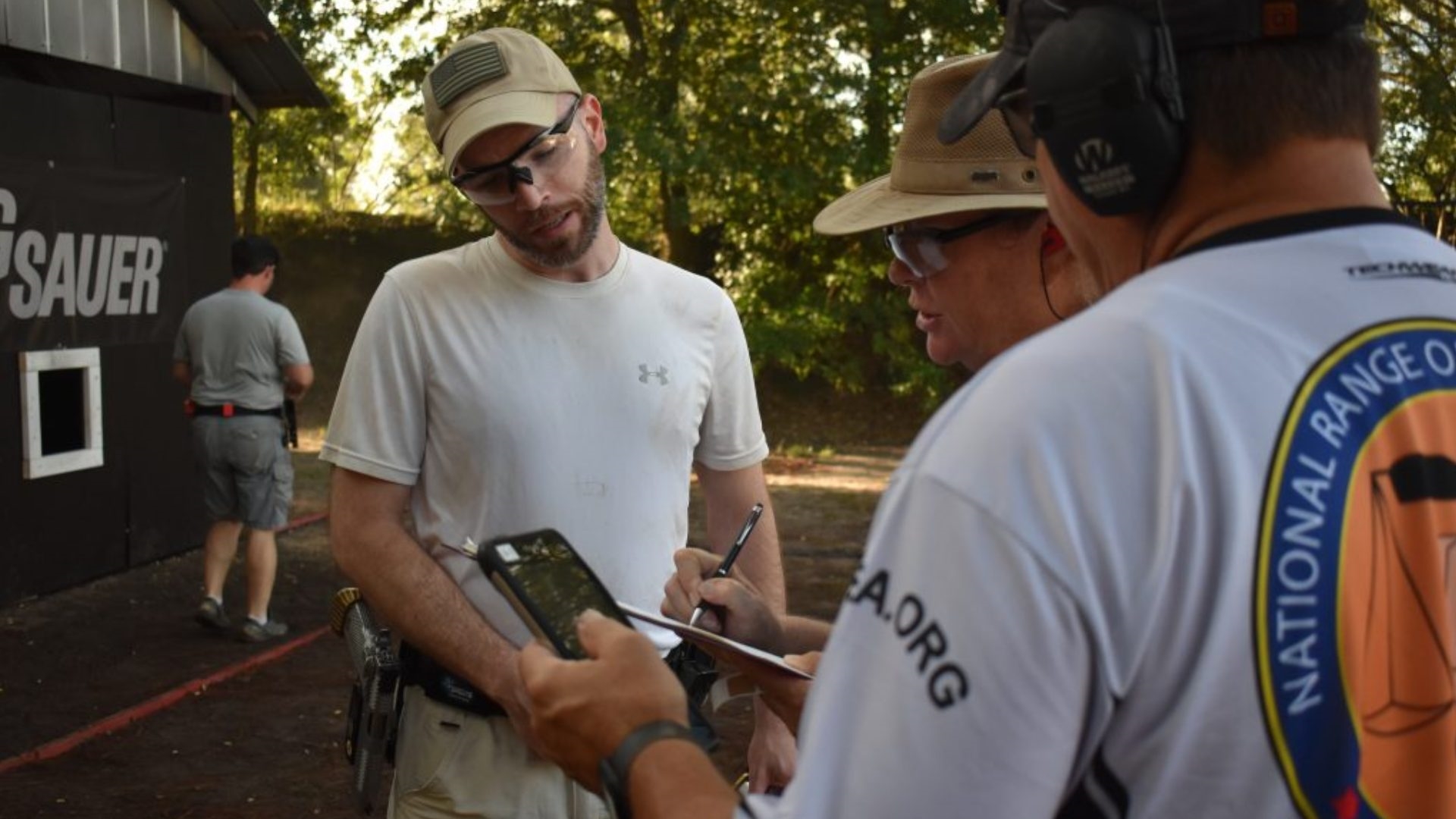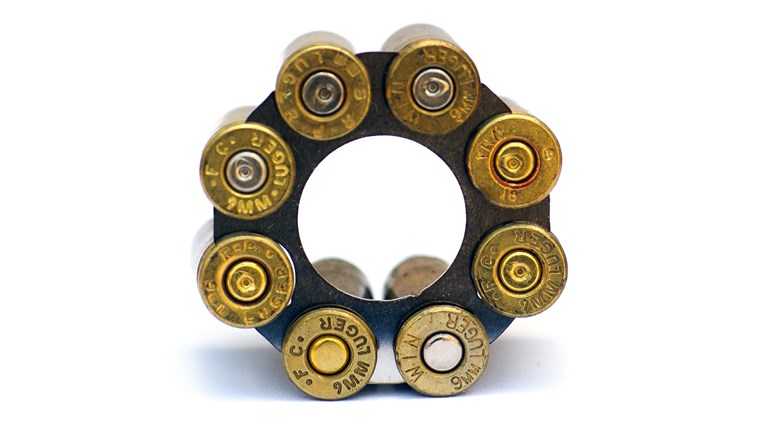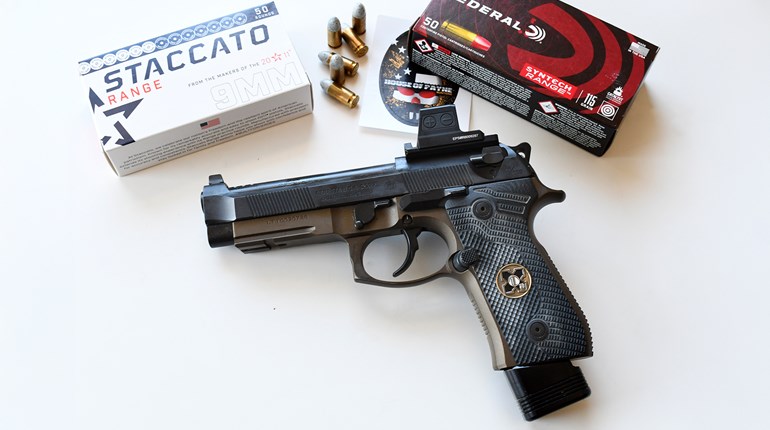
Here’s some excellent advice from a highly-respected Virginia minister that’s applicable to shooting coaches, and to all who are part of the shooting sports. It began with a riddle:
We are your constant companions,
We are your greatest helper or heaviest burden,
We will push you to success or drag you down to failure,
We are possessed by all,
Those who are great, we have made great,
Those who are failures, we have made failures.
Who are we?
Habits!
Webster defines a habit as, “A continual, often involuntary, or unconscious inclination to perform an activity, acquired through frequent repetition.”
Performance in competition―and in life―is largely determined by the habits that can maximize or totally negate our potential. All of us can change the way we compete on the range or how well we handle life.
If we want to perform better in competition, get higher grades in school or do better on the job, we might need to evaluate our habits. We can develop a plan to reinforce our habits or learn new ones. Training can reinforce or develop new habits that will help us improve.
Many of us learned from careers in the military that training prepared us for contingencies. Sometimes we found ourselves in tight situations where we didn’t have time to think. We had to rely on reflexive responses created by training to get through. That’s why the military trains continuously. To borrow a military saying and change it to a competitive one, “You compete like you train.”
Practice develops the good habits that will carry through the stress of competition. How you train yourself to use your habits is how you will respond to the pressure of competition. Looking at this in another way for competition, how well you train will directly result in how well you perform.
Vince Lombardi, Hall of Famer and former head coach of the Green Bay Packers and the Washington Redskins, was quoted as saying: “Practice does not make perfect. Only perfect practice makes perfect.” How much we do is important. How well we do it is decisive.
How do you train? Do you come to the range, hang a target, shoot 20 shots and then go home? Is there a reason for being at the range? Is there a training plan? How about a mental training plan or competition plan?
Goals
The first step in building a training plan is to clearly define the goals for the season, and then you can develop a plan to reach them. In training sessions, concentrate on performance goals rather than the outcome―the resulting score. Score only measures how well you executed that single shot, at that particular instant, nothing more.
As a part of identifying goals, be sure to include the most important competitions of the year. How far you desire to go in the sport will define your goals. For example, the most important competitions for juniors with the desire to earn a college shooting scholarship or make the U.S. Development Team would be the Junior Olympics and NRA Junior Sectionals. Preliminary tryouts and the national championships should definitely be part of a youngster’s goals in that case.
Editor’s note: Our friend Dr. Raymond Prior, a noted sports peak performance professional, would disagree with Mr. Moody about his advice for setting ambitious championship goals. Read Dr. Pryor’s article “Shoot Holes In Your Goals”.
Analysis
The next step in developing the training plan, now that the goals are established, is to analyze your situation. Here are some things to consider:
Season Plan
Once goals have been established and the situation has been evaluated, it’s time to develop the plan to cover the shooting season. The season plan is the road map to ensure that all of your known needs are addressed―not just the obvious technical shooting skills, but also the physical, tactical, mental and communication training.
A season plan helps to keep us on track. It also serves as a framework for evaluating the goals for the past season and developing a better plan for next season. With a season plan you are more likely to:
Research
As a part of developing the shooting plan, consider sources such as:
Practice Plan
The next step is to take the season plan and create specific practice plans for each training session. All of the details may not be known three months out, but build general plans for what should be accomplished, and then add the details as they become available.
Start with the next practice and add specifics. Keep the practice sessions focused on the fundamental skills, keeping them sharp throughout the season. As the season develops, check the plan regularly and evaluate it against the season plan to make sure your progress is on track toward your goals. Remember to be flexible and adjust to circumstances as the season progresses.
A coach should be able to help you plan practices. Keep plans in the shooting diary. Refer to the diary often, and continuously make notes on progress to include problem solving. If something were to happen that changed the plan, then there is a written record of any problems experienced, actions taken and, just as importantly, the results.
Training Session
This is where the hard work gets done. Each practice should include:
If you plan about 20 to 30 minutes for each section listed above, it provides a sample 2- to 2½-hour training session plan. A shooter can expect to grow faster if their program has about three or four quality training sessions per week. Unfortunately, most shooters don’t have that much time, so it is important the training sessions are planned wisely to get the most out of every one. When range time is available, make it interesting and productive.
Some shooting skills can be refined at home through dry firing. Physical training and mental training are perfect for off-range sessions and should be included in planning. These attributes contribute to the overall shooting program but don’t require actually being on the range.
At the end of the practice session, make copious notes in the diary and evaluate each session. You’ll want to acknowledge what went well and what could be improved. Write positive notes about performance improvement as well as the details that need to be worked on during the next training session. It’s important to get right on this task, as it’s well-documented that after 24 hours, people retain only about 50 percent of what they learned. Taking the time to record the new information in your diary and then reviewing what you wrote later will certainly help you remember.
Everything in life has an impact on our performance during competition. On a day-to-day basis―both on and off the range―learn to practice the mental skills. Remember to maintain a positive attitude, keep self-talk positive and continue the visualization skills. Training has to reflect everything that is done either on or off the range. Training plans must include those things we do during the day that are not related to shooting. They impact your time. Include all of your conscious life experiences as a part of the season plan. We are developing habits through our training that will get us through heated competition on the range and in our lives.
We are your constant companions,
We are your greatest helper or heaviest burden,
We will push you to success or drag you down to failure,
We are possessed by all,
Those who are great, we have made great,
Those who are failures, we have made failures.
Who are we?
Habits!
Webster defines a habit as, “A continual, often involuntary, or unconscious inclination to perform an activity, acquired through frequent repetition.”
Performance in competition―and in life―is largely determined by the habits that can maximize or totally negate our potential. All of us can change the way we compete on the range or how well we handle life.
If we want to perform better in competition, get higher grades in school or do better on the job, we might need to evaluate our habits. We can develop a plan to reinforce our habits or learn new ones. Training can reinforce or develop new habits that will help us improve.
Many of us learned from careers in the military that training prepared us for contingencies. Sometimes we found ourselves in tight situations where we didn’t have time to think. We had to rely on reflexive responses created by training to get through. That’s why the military trains continuously. To borrow a military saying and change it to a competitive one, “You compete like you train.”
Practice develops the good habits that will carry through the stress of competition. How you train yourself to use your habits is how you will respond to the pressure of competition. Looking at this in another way for competition, how well you train will directly result in how well you perform.
Vince Lombardi, Hall of Famer and former head coach of the Green Bay Packers and the Washington Redskins, was quoted as saying: “Practice does not make perfect. Only perfect practice makes perfect.” How much we do is important. How well we do it is decisive.
How do you train? Do you come to the range, hang a target, shoot 20 shots and then go home? Is there a reason for being at the range? Is there a training plan? How about a mental training plan or competition plan?
Goals
The first step in building a training plan is to clearly define the goals for the season, and then you can develop a plan to reach them. In training sessions, concentrate on performance goals rather than the outcome―the resulting score. Score only measures how well you executed that single shot, at that particular instant, nothing more.
As a part of identifying goals, be sure to include the most important competitions of the year. How far you desire to go in the sport will define your goals. For example, the most important competitions for juniors with the desire to earn a college shooting scholarship or make the U.S. Development Team would be the Junior Olympics and NRA Junior Sectionals. Preliminary tryouts and the national championships should definitely be part of a youngster’s goals in that case.
Editor’s note: Our friend Dr. Raymond Prior, a noted sports peak performance professional, would disagree with Mr. Moody about his advice for setting ambitious championship goals. Read Dr. Pryor’s article “Shoot Holes In Your Goals”.
Analysis
The next step in developing the training plan, now that the goals are established, is to analyze your situation. Here are some things to consider:
- How many practices are available over the entire season, and how long can the practices be?
- How many competitions are there?
- When are the major competitions? How much time between now and then is available for preparation? How much time is needed to get ready?
- Are there any special events or team meetings where attendance is required?
- What and when are the supporting competitions to try out new positions and strategies? Are there any practice matches at home to test your newfound skills?
- Are there fellow competitors around you who need support?
- What facilities, equipment and money are available? Do you have the money for all the expenses? Where can funding be found?
- Are instructional and support personnel resources available?
- Do you have someone to help?
- Is there anything else that may affect the program and planning?
Season Plan
Once goals have been established and the situation has been evaluated, it’s time to develop the plan to cover the shooting season. The season plan is the road map to ensure that all of your known needs are addressed―not just the obvious technical shooting skills, but also the physical, tactical, mental and communication training.
A season plan helps to keep us on track. It also serves as a framework for evaluating the goals for the past season and developing a better plan for next season. With a season plan you are more likely to:
- Keep actively involved, resulting in more learning and enjoyment during practice.
- Provide challenging and relevant learning situations.
- Learn skills in the appropriate progression that maximize learning and safety.
- Pace your learning and conditioning, so you are not overloaded or over-trained.
- Make the best use of available time, space and equipment.
- Increase your confidence to manage the competitive situation.
- The season plan can be a simple outline using a calendar. If the above steps are included in the plan, the training sessions should be more effective in helping develop good shooting habits.
Research
As a part of developing the shooting plan, consider sources such as:
- Reading books and watching videos that explain and demonstrate the skills of shooting.
- Drawing on your experience to identify the skills needed.
- Going to clinics and courses where you can learn more.
- Consulting with more experienced shooters and coaches to find a highly experienced coach who will serve as a mentor.
- Becoming a keen observer and student of the sport.
Practice Plan
The next step is to take the season plan and create specific practice plans for each training session. All of the details may not be known three months out, but build general plans for what should be accomplished, and then add the details as they become available.
Start with the next practice and add specifics. Keep the practice sessions focused on the fundamental skills, keeping them sharp throughout the season. As the season develops, check the plan regularly and evaluate it against the season plan to make sure your progress is on track toward your goals. Remember to be flexible and adjust to circumstances as the season progresses.
A coach should be able to help you plan practices. Keep plans in the shooting diary. Refer to the diary often, and continuously make notes on progress to include problem solving. If something were to happen that changed the plan, then there is a written record of any problems experienced, actions taken and, just as importantly, the results.
Training Session
This is where the hard work gets done. Each practice should include:
- Preparation: Stretch warm up and relax as if it’s a competition.
- Technical Training: One aspect of performance that you will work on.
- Competitive Training: Same technical elements and competition conditions.
- Finals Training: High excitement.
- Cooldown and Analysis: Stretch, cool down and work on the diary.
If you plan about 20 to 30 minutes for each section listed above, it provides a sample 2- to 2½-hour training session plan. A shooter can expect to grow faster if their program has about three or four quality training sessions per week. Unfortunately, most shooters don’t have that much time, so it is important the training sessions are planned wisely to get the most out of every one. When range time is available, make it interesting and productive.
Some shooting skills can be refined at home through dry firing. Physical training and mental training are perfect for off-range sessions and should be included in planning. These attributes contribute to the overall shooting program but don’t require actually being on the range.
At the end of the practice session, make copious notes in the diary and evaluate each session. You’ll want to acknowledge what went well and what could be improved. Write positive notes about performance improvement as well as the details that need to be worked on during the next training session. It’s important to get right on this task, as it’s well-documented that after 24 hours, people retain only about 50 percent of what they learned. Taking the time to record the new information in your diary and then reviewing what you wrote later will certainly help you remember.
Everything in life has an impact on our performance during competition. On a day-to-day basis―both on and off the range―learn to practice the mental skills. Remember to maintain a positive attitude, keep self-talk positive and continue the visualization skills. Training has to reflect everything that is done either on or off the range. Training plans must include those things we do during the day that are not related to shooting. They impact your time. Include all of your conscious life experiences as a part of the season plan. We are developing habits through our training that will get us through heated competition on the range and in our lives.



































